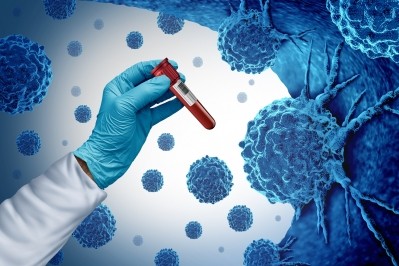The Oncology Biosimilars Market is projected to grow from USD 4725 million in 2024 to an estimated USD 23341.41 million by 2032, with a compound annual growth rate (CAGR) of 22.1% from 2024 to 2032. The oncology biosimilars market is rapidly emerging as a key segment in the biopharmaceutical industry. With increasing cases of cancer globally and the rising costs of innovative biologics, oncology biosimilars offer a cost-effective alternative while ensuring similar safety and efficacy profiles. This article delves into the market dynamics, trends, challenges, and future prospects of oncology biosimilars.
Browse the full report https://www.credenceresearch.com/report/oncology-biosimilars-market
Understanding Oncology Biosimilars
Biosimilars are biologic medical products that are highly similar to an already approved reference product, with no clinically meaningful differences in terms of safety, efficacy, or quality. In oncology, biosimilars address various cancers such as breast cancer, colorectal cancer, non-small cell lung cancer, and lymphoma. They replicate biologics like monoclonal antibodies and growth factors used in cancer treatment and supportive care.
Market Growth Drivers
1. Rising Cancer Incidence:
According to the World Health Organization (WHO), cancer is a leading cause of death worldwide, with an estimated 20 million new cases in 2022 alone. This growing disease burden amplifies the demand for cost-effective treatment options, making oncology biosimilars a critical component of cancer care.
2. Cost-Effectiveness:
Biosimilars are priced approximately 15-30% lower than their reference biologics, offering significant savings for healthcare systems and patients. This affordability is particularly impactful in low- and middle-income countries where access to expensive biologics is limited.
3. Patent Expirations:
Several blockbuster oncology biologics, including trastuzumab (Herceptin) and bevacizumab (Avastin), have lost patent protection in recent years. This has paved the way for the entry of biosimilars, driving market competition and adoption.
4. Regulatory Support:
Regulatory bodies like the U.S. Food and Drug Administration (FDA) and the European Medicines Agency (EMA) have established clear guidelines for the approval of biosimilars, encouraging pharmaceutical companies to invest in their development.
Key Market Trends
1. Expanding Product Portfolio:
The oncology biosimilars market is witnessing an expansion in product offerings. Biosimilars for blockbuster drugs such as rituximab, pegfilgrastim, and cetuximab are gaining traction, with multiple players entering the space.
2. Increasing Approvals and Launches:
Over the past decade, the FDA and EMA have approved numerous oncology biosimilars, including biosimilars for trastuzumab (e.g., Ogivri, Herzuma) and bevacizumab (e.g., Zirabev, Mvasi). These approvals have bolstered the market and enhanced access to affordable cancer treatments.
3. Collaborations and Partnerships:
Pharmaceutical companies are increasingly entering strategic collaborations to enhance biosimilar development and commercialization. Partnerships between biotech firms, contract research organizations, and healthcare providers are streamlining market entry and expanding distribution networks.
4. Rising Acceptance Among Physicians:
Initial skepticism surrounding biosimilars is gradually fading as real-world evidence demonstrates their safety and efficacy. Educational initiatives and clinical data are fostering confidence among oncologists and patients.
Challenges in the Market
1. Regulatory and Development Complexity:
Developing biosimilars involves sophisticated processes and significant investment. Ensuring similarity in structure, function, and clinical outcomes with the reference biologic is challenging and time-consuming.
2. Market Competition:
While competition drives innovation, it also exerts pressure on pricing and profitability. Companies must adopt innovative pricing strategies and differentiation approaches to capture market share.
3. Physician and Patient Perception:
Despite increasing acceptance, some healthcare providers and patients remain cautious about switching from biologics to biosimilars. Addressing these concerns through education and robust clinical evidence is crucial.
Future Outlook
The oncology biosimilars market is poised for exponential growth, driven by factors like rising cancer prevalence, supportive regulatory frameworks, and ongoing technological advancements. By 2030, the market is expected to reach significant valuations, with Asia-Pacific and emerging markets playing a pivotal role due to their large patient populations and cost-sensitive healthcare systems.
Moreover, advancements in biosimilar manufacturing, including the use of artificial intelligence and machine learning, promise to reduce development timelines and costs. Governments and healthcare organizations worldwide are also likely to continue promoting biosimilar adoption through favorable policies and reimbursement frameworks.
Key Player Analysis:
- Allergan (Ireland)
- Amneal Pharmaceuticals LLC. (U.S.)
- Apotex Inc. (Canada)
- Aurobindo Pharma (India)
- BIOCAD (Russia)
- Bristol-Myers Squibb Company (U.S.)
- Cipla Inc. (U.S.)
- Eli Lilly and Company (U.S.)
- Endo International plc (Ireland)
- Hoffmann-La Roche Ltd. (Switzerland)
- GlaxoSmithKline plc (U.K.)
- Glenmark Pharmaceuticals Limited (India)
- Lupin (India)
- Mylan N.V. (U.S.)
- Novartis AG (Switzerland)
- Pfizer Inc. (U.S.)
- Sanofi (France)
- Sun Pharmaceutical Industries Ltd. (India)
- Takeda Pharmaceutical Company Limited (Japan)
- Teva Pharmaceutical Industries Ltd.(Israel)
- Zydus Cadila (India)
Segmentation:
By Drug
- G-CSF
- Monoclonal Antibody
- Hematopoietic Agents
By Disease Indication
- Breast Cancer
- Non-Small Cell Lung Cancer
- Colorectal Cancer
- Neutropenia
- Blood Cancer
- Leukemia
- Myeloid Leukemia
- Chronic Lymphocytic Leukemia (CLL)
- Non-Hodgkin Lymphoma
- Others
By Distribution Channel
- Hospital Pharmacy
- Retail Pharmacy
- Online Pharmacy
By Regional
- North America
- U.S.
- Canada
- Mexico
- Europe
- Germany
- France
- U.K.
- Italy
- Spain
- Rest of Europe
- Asia Pacific
- China
- Japan
- India
- South Korea
- South-east Asia
- Rest of Asia Pacific
- Latin America
- Brazil
- Argentina
- Rest of Latin America
- Middle East & Africa
- GCC Countries
- South Africa
- Rest of the Middle East and Africa
Browse the full report https://www.credenceresearch.com/report/oncology-biosimilars-market
Contact:
Credence Research
Please contact us at +91 6232 49 3207
Email: sales@credenceresearch.com
Website: www.credenceresearch.com

Leave a Reply
You must be logged in to post a comment.